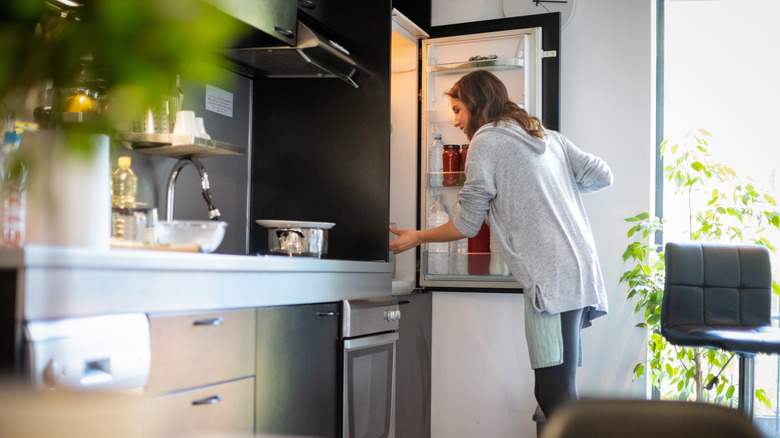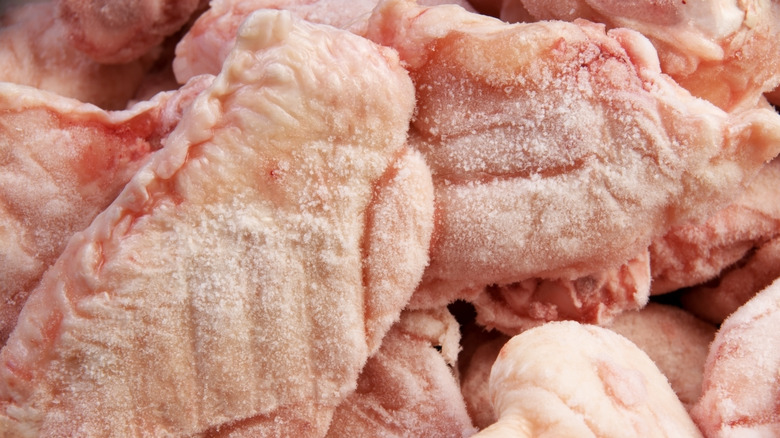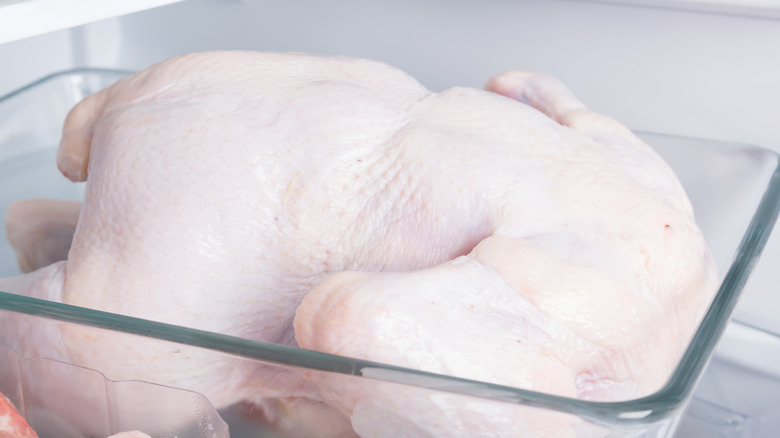
Whether you’ve just bought raw meat from the grocery store or are letting it thaw in the fridge after taking it out of the freezer, it’s crucial to know how long this meat can stay in the refrigerator before it becomes unsafe to eat.
Consuming contaminated food – including items that are raw, spoiled, or undercooked – can elevate the risk of foodborne illnesses, as noted by the U.S. Centers for Disease Control and Prevention (CDC). While seafood, fruits, vegetables, and dairy can pose risks, poultry, especially chicken, is a major concern.
Raw chicken can harbor bacteria such as Salmonella, Campylobacter, and Clostridium perfringens. A 2011 study in the Journal of Food Protection found that Campylobacter was present in 84.3% of 510 raw chicken samples from Irish supermarkets, while Salmonella was detected in about 5% of the samples.
Cook or freeze raw chicken after one or two days

Ingesting these bacterial contaminants can lead to food poisoning symptoms like vomiting, diarrhea, and fever. In severe cases, it can result in kidney damage, meningitis, and impaired brain or nerve function.
To minimize the risk of food poisoning, it’s advisable not to store raw chicken in the refrigerator for too long. According to the U.S. Department of Agriculture (USDA), raw chicken should not be kept in the refrigerator at 40 degrees Fahrenheit for more than one or two days. If you can’t cook it within this timeframe, transfer it to the freezer at 0 degrees Fahrenheit. You can safely freeze raw chicken in its original packaging, but if it will be stored for over two months, add extra protection by wrapping it in plastic wrap, a freezer bag, or foil.
Can you refreeze raw chicken after thawing it in the fridge?

Now that we know what to do with raw chicken straight from the store to the fridge, what about refreezing chicken that was thawed in the fridge? Is it safe to freeze it again?
First, consider how the chicken was thawed. Leaving it in the garage, on the counter, or in a shopping bag increases the risk of contamination, making it unsafe to eat, according to the USDA. However, uncooked raw chicken properly thawed in the refrigerator is safe to refreeze, although the quality might diminish as it loses moisture. Raw foods thawed and cooked after freezing are also safe to refreeze. As a rule of thumb, food left outside the fridge for over two hours should not be refrozen. The same applies to food exposed to temperatures above 90 degrees Fahrenheit for more than an hour.
So, if your raw chicken has been in the fridge for nearly two days, remember to either cook it, freeze it, or refreeze it.




